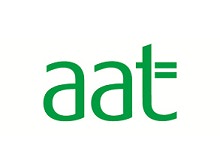Could ‘apprenticeship gap year’ be the solution for thousands of students?

With thousands of students heading to start their university courses this week, and many others returning for the first time since spring, approximately 15,000 other school leavers are remaining at home having chosen to defer their university entry until 2021.
And, with ongoing travel restrictions likely to hamper plans for these gap-year students to plan a trip abroad, AAT (Association of Accounting Technicians) is reporting a rise in ‘apprenticeship gap years’ – with people who left school in the summer enquiring about taking an apprenticeship in accountancy during their year out.
Indeed, AAT has received a number of queries from parents of school leavers exploring different options for their children, including studying for the qualification directly or through an apprenticeship.
Apprenticeships attract government support
With fears that youth unemployment (18-24 year olds) could rise by approximately 600,000 this year, there has been unequivocal government support for employers to take on apprentices, with £2,000 being offered to businesses for each apprentice under the age of 25 who is hired. This is designed to encourage employers to boost their apprenticeship intake – which may give a further advantage for those planning to take a vocational qualification.
In addition, many vocational courses, including AAT accounting and bookkeeping qualifications, can be accessed online. With some colleges and training providers still closed, there was a 26% rise in August 2020 of new students studying remotely, compared to July.
Rachel Staples, Head of Qualifications at AAT, said:
“Given the challenges with this year’s A-level results and uncertainty over how universities will operate given social distancing measures, it’s of no surprise that deferrals have hit an all-time high. What is less certain, however, is how would-be students intend to spend their next year.
“Gaining a vocational qualification could be the answer. For those who do go on to start university in 2021, they will have the bonus upon graduation of both a degree and a technical qualification, which will undoubtedly make them more attractive to employers. For others, the qualification – especially if taken in the form of an apprenticeship – can lead them directly into employment, without the need to go to university at all.”
Case study: I never went to university – and now manage my company’s finances
 Farha Jamadar, 31 from Greenford, North London, didn’t get the opportunity to take A-levels. She instead left school a year earlier, after failing her AS exams.
Farha Jamadar, 31 from Greenford, North London, didn’t get the opportunity to take A-levels. She instead left school a year earlier, after failing her AS exams.
“I had done well at school up until that point, so imagined I would do A-levels and go on to university,” Farha says. “I suddenly had to re-evaluate everything. I had no real idea what I wanted to do, but had always been interested in business, so found myself a business administration apprenticeship with American Airlines.”
“I loved it, and soon realised I was fascinated by the finance side of things.”
Farha looked for a permanent role locally, and found a job at Northolt-based timber suppliers Todd Doors. She was soon thrown in at the deep end after her manager left, but was supported through her accounting qualifications with AAT (Association of Accounting Technicians) over a three year period.
“I loved that I was studying something which had a direct and immediate impact on my job,” Farha adds.
“I would study something one evening and be able to put it into good use the next day.”
As Farha progressed through her studies, she was also promoted at work, up to her current position of financial accounts manager.
“I manage my team, keep an eye on all the numbers, and make sure everything is spot on from stock control in our stores to our budgets,” Farha says.
“To people not getting the results they think they need this month – try other things, think differently and you never know where it will take you.”
Case study: From local apprentice to global chief operating officer
 Karl Eastwood went straight from sixth form college into an accounting apprenticeship role in Bradford studying AAT qualifications, back in 2006.
Karl Eastwood went straight from sixth form college into an accounting apprenticeship role in Bradford studying AAT qualifications, back in 2006.
“I decided that the traditional university route did not suit my learning style and I knew that I enjoyed working, so the study and work route with AAT best suited me,” he explains.
“At my school’s graduation ceremony, I was classified as ‘unemployed’ as I don’t think they felt a need to acknowledge anybody not following university studies. This was a little frustrating and demoralising.”
14 years on, Karl has achieved chartered accountant status with ACCA (the Association of Chartered Certified Accountants), and is now based in Chicago working as global chief operating officer for leading language services company Global Lingo, with other offices in the UK, Romania, Singapore, Australia and Guatemala.
“The job has allowed me to go to lots of different places, all of which would not have been made possible without my AAT qualifications,” Karl adds.
“My AAT studies were pivotal in getting me here, along with my ’non-typical accounting’ personality.”
And Karl doesn’t think that the economic downturn should put anyone off gaining a finance qualification that can set them up for life.
“The skills that you develop through studies and work experience provide more than just accounting knowledge,” Karl adds.
“You learn skills that can be applied within any industry and across many roles within an organisation. For example, the problem-solving approach to accounting can be transferred to operations and technology roles which ensures you can maximise the value you add within any organisation.”
With the Covid-19 pandemic putting a strain on the jobs market, there has never been a better time to gain skills qualifications to be fit for employment. Accountancy is open to all, regardless of age, school qualifications or background, and AAT welcomes anyone thinking about starting a career in accountancy or bookkeeping.

Responses